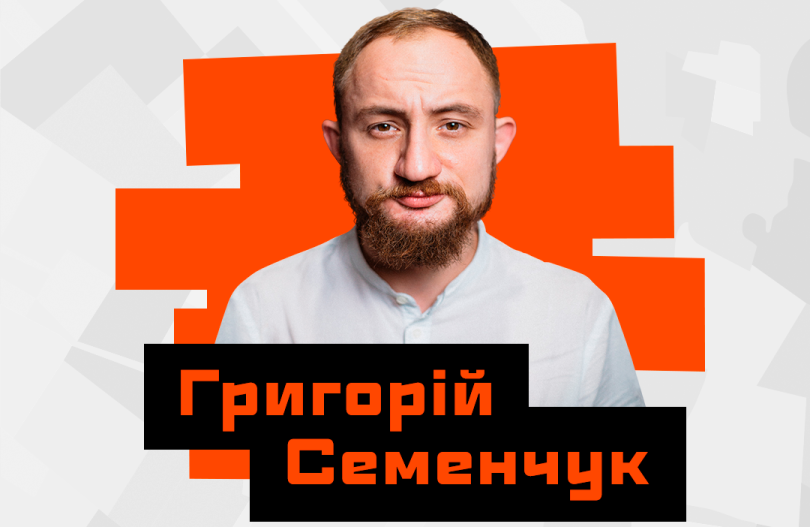Explaining reality
„Is there normal life in Ukraine now?“ asks the young director of a cultural center in Berlin. I pause for a moment to consider how to explain that despite the relative security of Lviv, where I live, my old life is no more. Every person has certain points of no return in their life. For foreigners from „comfortable“ countries, where the last decades have been peaceful, these turning points may be primarily personal events. But for us in Ukraine, they are tied to the country’s fate for the last 100 (200? 300?) years. I see this not only as someone who has lived through Ukraine’s independence but also through the life stories of my parents, grandparents, and great-grandparents. We’ve gone through collectivization, war, the collapse of the USSR, two revolutions, and a war with Russia. It’s all part of our Ukrainian „timeline.“ „Yes, my life is relatively normal,“ I answer. But is it really normal? After all, I worry daily about friends in the army and loved ones in cities under shelling. I feel the pain of my friends who left Ukraine and have had to settle abroad somehow. Is this a normal life? When explaining reality, the main thing is not to sound like a fool, especially here in cities where there are no air raid sirens, curfews, and endless deaths around.
A German journalist asks me how the war has personally affected me. I don’t know where to start. I’ve experienced so much anger, pain, and grief, but also love, hope, and pride for my country. It’s a range of emotions that I’ve never felt before. What should I tell her? Should I talk about the children who played in cold bomb shelters while the sounds of war echoed around them? Or about the tears of an evacuated mother from the Zaporizhzhia region, who was searching for something on a street in Lviv at 7 am? Should I speak about the sadness in the faces of my friends who were sending their families to the border, not knowing what lay ahead? Or perhaps the story of my friend whose son died in battle in Kharkiv? Or my good friend who was injured in Donbas? Or maybe I should start my monologue by mentioning my classmate, whose name I saw on the list of captive defenders of Azovstal. I have a lot to say, but it’s hard to find the right words to convey the depth of what we’ve all been through. The journalist looks shocked. Apparently, when you follow the war only through the media, it all seems like some kind of computer game, a simulation of reality.
My friend’s daughter, a German living in Denmark, also asks me and my friend about the war. She is from a generation of European teenagers who are preoccupied with issues such as ecology, migration, and liberal values. As she listens to our stories, she tries to clarify something with her questions, almost in amazement. It’s immediately obvious that she wasn’t very interested in the details of our reality. Her eyes round more and more as we answer her questions. Later, as we walk through the city, I see a notification about an air raid warning in Lviv. „Right now, my wife is in a bomb shelter,“ I say, feeling a lump in my throat and wanting to be with her, even under threat, but together with my loved ones. My friend’s daughter suddenly starts crying hysterically. I hug her and say, „Don’t cry, we’ll get through this. We have to, because we have no choice.“ „I don’t understand how this can be,“ she says, sobbing.
„Where are you from?“ asks a group of men in expensive suits in the lobby bar of a small British town hotel. „From Ukraine,“ I reply. „Wow, Ukraine! Are you here for the literary festival? How do you like it here?“ they ask with genuine enthusiasm. „I like it, but I want to go home. I’m worried about my wife, parents, and friends. Yesterday our cities were bombed again all morning,“ I explain. „Why do you want to go back? Bring your families here,“ they suggest. I explain that we want to live at home, our life is already difficult but we love it and just want to live on our native land, because only there one feels happy. „I understand, you are fighting well. Your country is a true example for the whole world. Thank you for that,“ they say. I order drinks from the bartender. One of the men says, „This is on me. It’s an honor to host Ukrainians.“ My first thought is to tell them that it’s better to send weapons. „Thank you,“ I reply, turning back to my friends, although my first thought was to say that it’s better to send weapons.
My morning at Oxford College begins with a loud siren that sends shivers down my spine. It reminds me of the one used to announce a nuclear attack in Ukraine. At first, I think it’s a dream, but soon realize it’s not. I quickly get dressed and grab my Ukrainian passport, the most valuable item in my luggage. I head outside to the college yard, only to find out it’s a fire alarm drill. An administrator stops me on my way back to my room, „Sir, you can’t come back until the training is over and there’s no alarm signal,“ he tells me. I explain, „I’m from Ukraine, believe me, I know what to do.“ He looks at me sympathetically and allows me to return to my room, looking slightly embarrassed. Despite not being able to fall back asleep, I lay on my bed and try to relax. I’m happy to be heading home soon, and consider this as a reminder that even during this short trip, I was able to successfully get my point across to at least one person.
Translated by Yulia Lyubka and Kate Tsurkan











